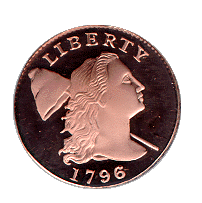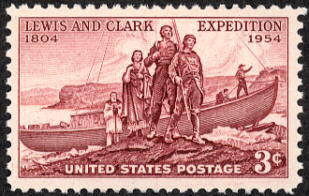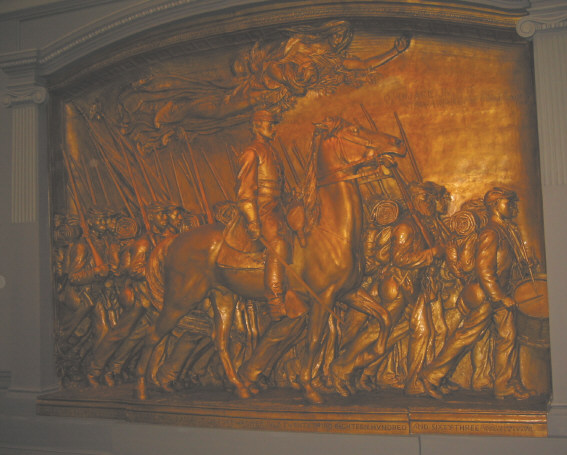
History and Memory in France and the United States
History 410: Winter 2004
University of Oregon

CRN 25258
Wednesdays, 4-6:50, 122 McKenzie Hall
Office Hours:
Birn, 363 McKenzie, W 2-3:30 rbirn@oregon.uoregon.edu
Dennis, 357 McKenzie, M 2-3:30, W 10-11:30 mjdennis@darkwing.uoregon.edu
Course Description
The American southern writer William Faulkner famously wrote in Absalom, Absalom , “The past isn't over. The past isn't even past.” We carry our pasts—as individuals, members of groups, as citizens—around with us. And we do so in complicated ways, drawing on personal experience and knowledge gained in various ways, from academic historians, official spokespersons, popular media, and other diffuse cultural sources. This course examines the ways that we understand ourselves and our societies through our pasts, focusing attention on France and the United States to give a comparative dimension to our inquiry. Students should gain a sense of French and United States history in the process, not merely an understanding of these pasts, but insight into how understanding and representation of those pasts has been constructed and reshaped over time through memory and history. We will examine the origin of national myths, heroes, celebrations and commemorations, monuments and memorials, and national traumas.
Attendance is mandatory and critical in this discussion-based course. Students will be evaluated based on the quality of their preparation and participation in class discussions (25%), weekly journals (50%), and a final exam (25%).
Reading The following books are required: David W. Blight, Race and Reunion: The Civil War in American Memory ( Cambridge , Mass. : Harvard University Press, 2001). In addition, there are a number of readings on reserve in the Knight Library, as detailed in the syllabus below. Please complete all reading assignments and be prepared to discuss them by the date indicated. |
Syllabus
January 7. Introduction.
January 14. Commemorations, Nationalism, Identity.
John R. Gillis, ed., Commemorations: The Politics of National Identity (Princeton: Princeton University Press, 1994), 3-57, 74-104, 127-67, 186-211, 258-80.
January 21. Founders/Genesis: The French Case.
Pierre Nora, “General Introduction,” Rethinking France: Les Lieux de Mémoire , dir. Pierre Nora, vol. I, The State , tsl. Mary Trouille, tsl. dir. David Jordan ( Chicago : University of Chicago Press , 2001), vii-xxxiii. DC 33 .L6513 2001 vol. I. On reserve.
André Vauchez, “The Cathedral,” in Realms of Memory: The Construction of the French Past , dir. Pierre Nora, tsl. Arthur Goldhammer, tsl. dir. Lawrence D. Kritzman, vol. II, Traditions (New York: Columbia University Press, 1997-1998), 37-68. On reserve.
Krzysztof Pomian, “Franks and Gauls,” in Realms of Memory I, Conflicts and Divisions , 21-76. On reserve.
Robert Morrissey, “Charlemagne,” in Rethinking France , 133-80. On reserve.
Michel Winock, “Joan of Arc,” in Realms of Memory III: Symbols , 433-80. On reserve.
Websites of interest:
http://www.charlemagne.org/
http://archive.joan-of-arc.org/
http://www.humnet.ucla.edu/santiago/histchrl.html
http://www.asterix-international.de/asterix/characters.shtml
January 28. Founders/Genesis: The American Case. Mothers, Fathers, Pioneers.
 |
Ann Uhry Abrams, The Pilgrims and Pocahontas: Rival Myths of American Origins (Boulder, Colo.: Westview Press, 1999), 3-48, 261-82. On reserve. Robert Rydell, “The Expositions in Portland and Seattle : ‘To Celebrate the Past and to Exploit the Future,'” in Rydell, All the World's a Fair: Visions of Empire at American International Expositions, 1876-1916 (Chicago: University of Chicago Press, 1984), 184-207. On reserve. Mark Spence, “The Unnatural History of the Lewis and Clark Bicentennial,” Montana: The Magazine of Western History (summer 2003), 56-63. On reserve. The above selections are available through electronic reserve at http://libweb.uoregon.edu/~acs/reserve-index.html Richard White, “Frederick Jackson Turner and Buffalo Bill,” in James R. Grossman, ed., The Frontier in American Culture (Berkeley, Cal.: The Newberry Library and University of California Press, 1994), 6-65. On reserve. |
February 4. The American Revolution: Celebration, Sanctification.  |
Michael G. Kammen, A Season of Youth: The American Revolution and the Historical Imagination (New York: Knopf, 1978), 3-75. Electronic reserve. Edmund S. Morgan, “Conflict and Consensus in the American Revolution,” in Stephen G. Kurtz and James H. Hutson, eds., Essays on the American Revolution (Chapel Hill , N.C. : University of North Carolina Press), 289-309. Electronic reserve. The Declaration of Independence. Pauline Maier, American Scripture: Making the Declaration of Independence (New York: Knopf, 1997), ix-xxi, 154-215. On reserve. Frederick Douglass, “What to the Slave, Is the Fourth of July?” (1852). Electronic reserve ("Re-Declarations"). |
February 11. The French Revolution: Celebration.
Film: Jean Renoir, director: “La Marseillaise.” (Video 01015.) |
February 18. The French Revolution: Commemoration.
Film: Andrzej Wajda, director: “Danton.” (Video 00100) |
February 25. The American National Trauma: The Civil War.
David W. Blight, Race and Reunion: The Civil War in American Memory (Cambridge, Mass. : Harvard University Press, 2001). |
 |
March 3. The French National Trauma: Vichy.
Nicholas Atkin, The French at War, 1934-1944 (London : Longman, 2001), 15-79. On reserve. |
Final Examination: Tuesday, March 16, 2004, 3:15.